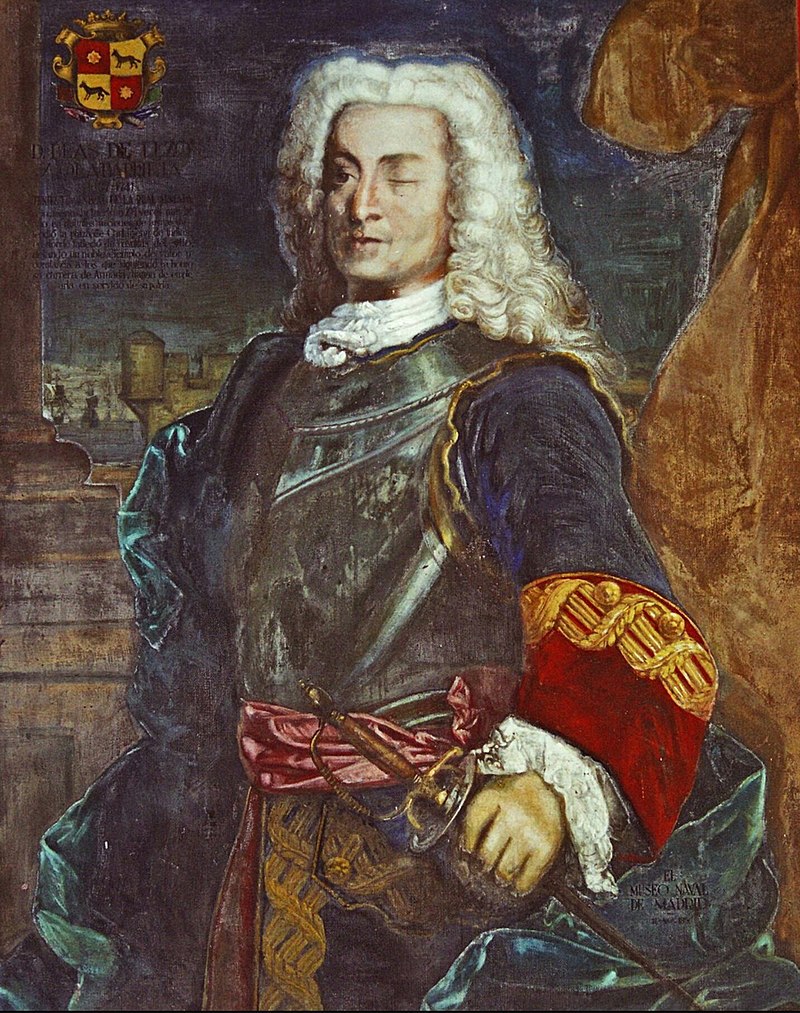Basques played enormous and outsized roles in the centuries of military activity of both France and Spain. Both countries had colonies across the world, held together through military might. Basques were a large part of that history. Perhaps one of the most distinguished military commanders in all of Spanish history is Blas de Lezo y Olavarrieta. Because of all of the injuries he sustained in his military career, he has been called Pegleg and Half-Man.

- Blas de Lezo y Olavarrieta was born in 1689 in Pasajes, then part of Donostia. His parents were Pedro de Lezo and Agustina de Olabarrieta.
- De Lezo first saw action in the War of Succession, serving as a midshipman. On August 24, 1704, during the Battle of Vélez-Málaga, as his ship traded shots with a British counterpart, he was hit by a canon ball. Despite the fact that the wound later requires him amputate his leg, during the battle he remained on deck, doing what he can to support his mates. His commander promoted him for his actions. He was 15 years old at the time.
- After his recovery, he returned to service and became distinguished for his tactical skills, circumventing a British blockage and defeating a ship with clearly superior armaments. He was again promoted and placed in charge of protecting conveys ferrying weapons and supplies that reinforce the armies besieging Barcelona.
- In a second seige of Barcelona, de Lezo was again injured, this time in the right arm, rendering it useless for the rest of his life. In yet another injury, he lost his left eye.
- After the War of Succession, he continued to serve, this time being placed in charge of a shipment of silver between Spain and the Bahamas. He ends up spending fourteen years patrolling the South American coast to ferret out British and Dutch smugglers. For his efforts, he became Admiral of the South Sea fleet in 1726.
- De Lezo continued to distinguish himself in various adventures in the Mediterranean and elsewhere. Because of his remarkable achievements, he was eventually made Lieutenant General of the Navy with the position of general commander of the department of Cádiz. Posthumously, due to his stellar performance in the defense of Cartagena (in modern day Colombia), he was made Marquis de Ovieco.
Primary sources: Wikipedia; Rilova Jericó, Carlos. Lezo Olabarrieta, Blas de. Enciclopedia Auñamendi, 2019. Available at: http://aunamendi.eusko-ikaskuntza.eus/es/lezo-olabarrieta-blas-de/ar-81070/
Discover more from Buber's Basque Page
Subscribe to get the latest posts sent to your email.

